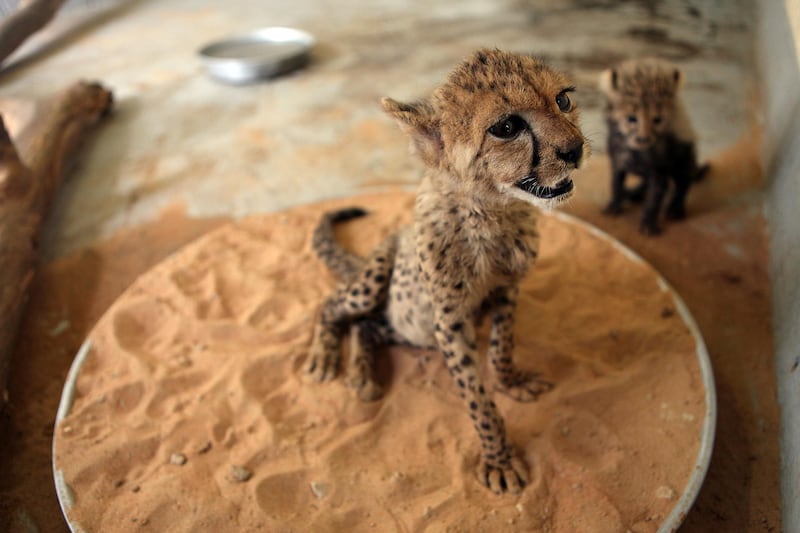Outside a zoo, it should be nigh-on impossible to sight the sleek silhouette of a panther or the flick of a lemur's tail in the Middle East. Those thrilling sightings belong firmly in the wild or on a safari.
Yet as The National reported yesterday, border officials are seizing growing numbers of exotic animals as they step up the battle against traffickers. Despite stringent laws banning the sale of rare and endangered species as pets, many still hawk them.
After being bought, some creatures have subsequently escaped; footage of lions and cheetahs roaming residential areas inevitably go viral. But this is no trivial matter. Being kept as pets is stressful and potentially life-threatening for creatures which are used to the wild. Snatched from the freedom of their natural habitats, they can become anxious, sick or even violent, lashing out under duress.
Worldwide, the industry is worth up to $25 billion and is second only to drugs as an illegal trade. In 2010, Al Ain Zoo took in five young cheetahs discovered in a shipment at Dubai international airport; another 10 had tragically died in transit.
Wild animals do not adapt well to captivity because they require specific care, sustenance and climate control, which only zoos and licensed facilities are fit to provide. Quite apart from the health and safety risks to owners, keeping such creatures in captivity constitutes animal cruelty. In addition, the illicit trade feeds criminal networks in the UAE and across the globe. It is vital for authorities to enforce the law, be on maximum alert for misdemeanours and spread awareness of this issue.
That begins at airports and ports, where exotic animals are often found smuggled in suitcases or custom-made items of clothing, and ends with owners, who imperil their communities, the animals and themselves. The battle to combat the trade in rare animal products, like rhino horns and ivory, is more complex but no less sinister.
While they might make an impressive trophy, there is no justification for the cruelty of taking wildlife out of its natural habitat.





